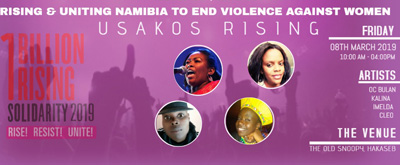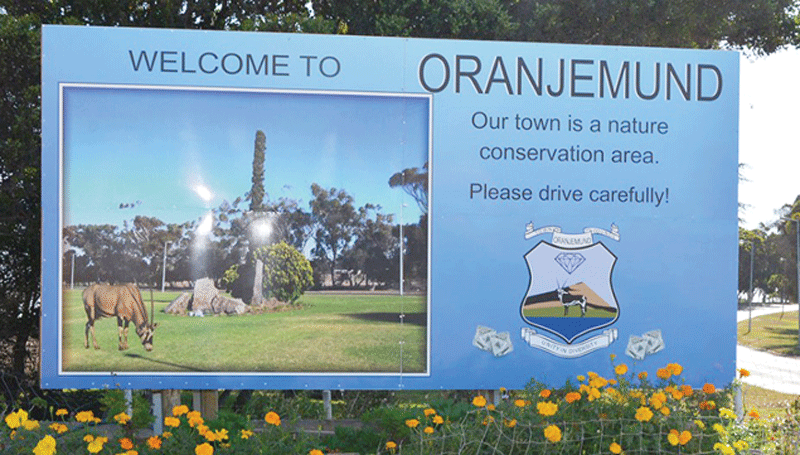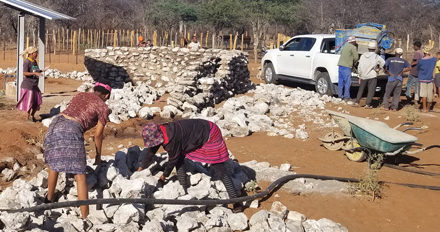
Activist calls for an end to violence against women – Solidarity march set for Usakos

Women rights activist, Irene Garoes seeks to end violence against women through her intended ‘One Billion Rising campaign.’
The campaign is being coordinated through Y-Fem Trust Namibia which is a feminist women’s human rights organisation working in the Erongo region with young women.
The activist this week said the intended solidarity walk and official event in Usakos will take place on 8 March, which is International Women’s Day.
In a statement Garoës said she plans to have several events starting from 2 to 8 March. Garoes said for the campaign female Ma/gaisa artists, Imelda, Oc Bulan, Cleo and Kalina, have already made a song specifically for these events calling an end to violence.
“We will have speeches from government officials, civil society organisations, young people and the community of Usakos, this is an artistic uprising therefore we will have dancing and music performances at this historical event of rural community from Usakos and surrounding farms and towns standing together against violence,” she added.
She explained that last year they rose in Swakopmund, therefore this year the Usakos young women and community has taken up to join this global campaign.
“We are calling for an end to all forms of violence against women that are perpetuated by poverty, economic injustice, hate and discrimination, in specific we are calling to stop rape, sexual harassment and institutional violence that controls the bodily autonomy of girls and women to freely expressing themselves,” she added.
According to Garoes they are calling for the proper implementation and review of the domestic Violence Act and the Rape Act of Namibia, which should also look at stalking and harassment, online violence included, sexual violence, bail given to accused rapist.
“We also need to start a conversation on human right of rape survivors, treatment and care of survivors and policy reforms that protect them as citizens of this country,” she concluded.











































